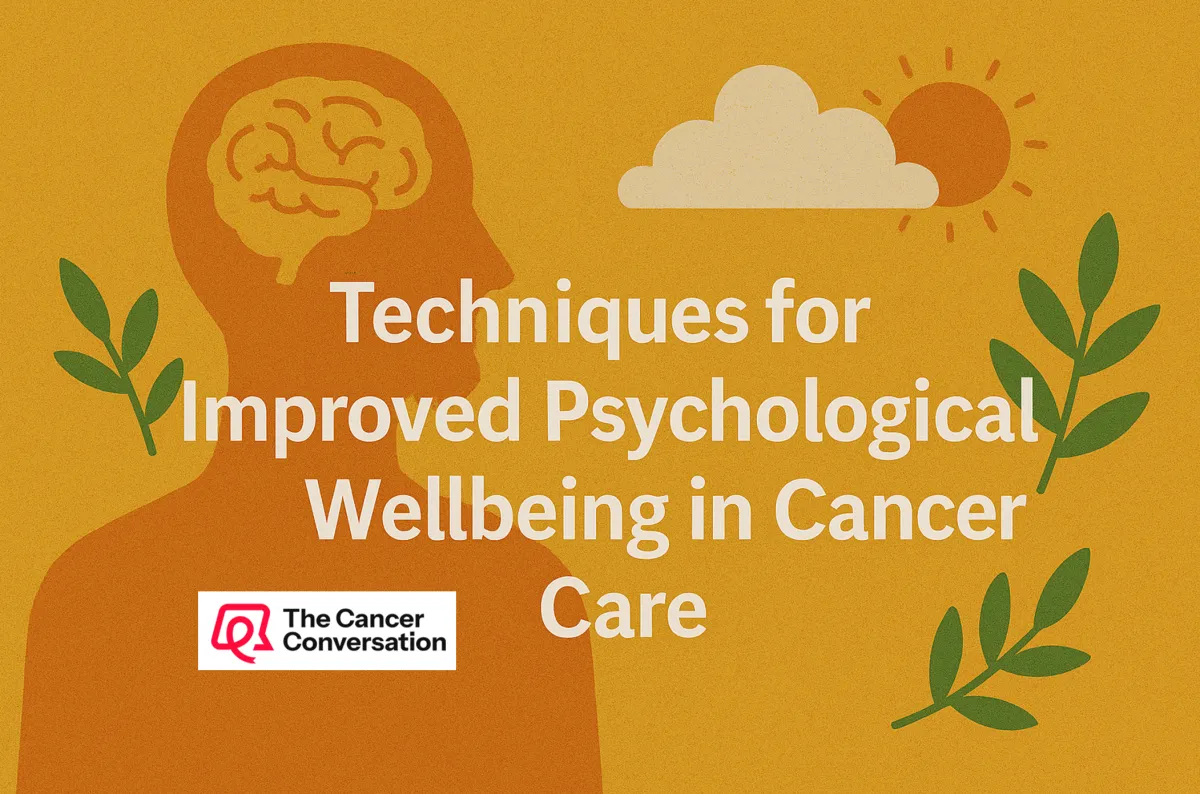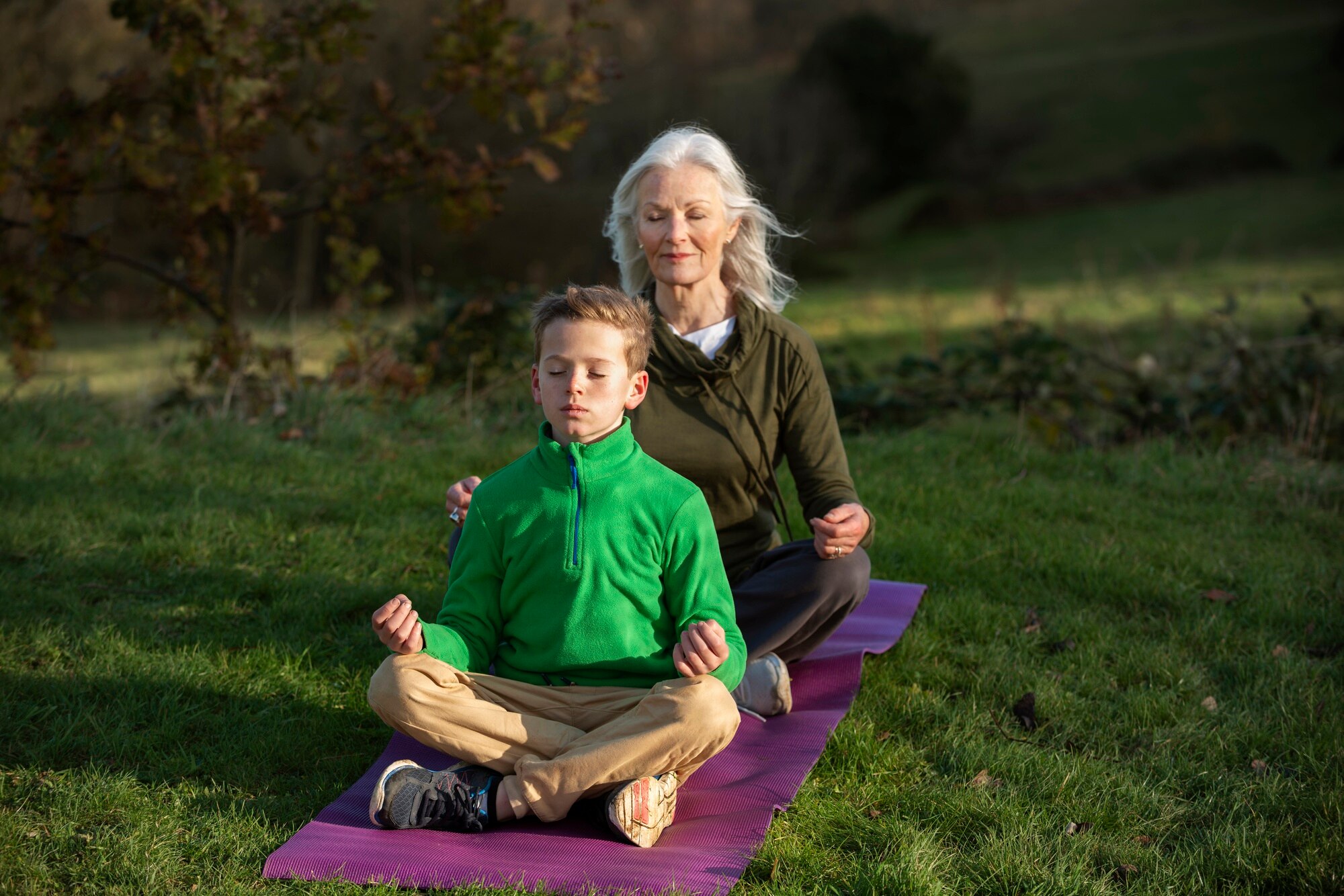
Techniques for Improved Psychological Wellbeing in Cancer Care
Facing a cancer diagnosis can be incredibly challenging, not just for patients but also for their caregivers and loved ones. A strong foundation of psychological wellbeing is crucial during this time, serving as a pillar of strength and hope. In this blog post, we explore holistic cancer care techniques that promote mind-body wellness, offering practical ways to enhance emotional resilience. By integrating these practices into your care plan, you can find support and empowerment on this journey. Let's delve into how these strategies can support you or your loved ones through the emotional waves of cancer care. 🌟 Learn more about mind and body approaches for cancer symptoms here.
Holistic Cancer Care Strategies

The holistic approach in cancer care emphasizes the interconnection of mind and body to enhance overall wellbeing. By integrating psychological wellbeing practices, patients and their loved ones can find renewed strength and resilience. Let's explore how these strategies play a crucial role in cancer care.
Importance of Mind-Body Connection
The mind-body connection is essential in holistic cancer care, influencing both physical and emotional health. It suggests that our thoughts, emotions, and behaviors can impact our physical state. Recognizing this link can empower patients, promoting proactive steps toward healing.
Studies show that practices enhancing the mind-body connection can reduce stress and improve quality of life.
Understanding this connection can lead to healthier coping mechanisms during cancer treatment.
Table: Mind-Body Connection Benefits
Benefit
Impact on Wellbeing
Reduced Stress
Enhances immune function
Improved Emotional Health
Decreases anxiety and depression
Better Physical Health
Aids in managing treatment side effects
For more insights, explore mind-body wellness practices.
Integrating Psychological Wellbeing Practices
Integrating psychological wellbeing practices into cancer care can help patients manage their emotional health. These practices include therapy, support groups, and mindfulness activities that promote emotional resilience.
Therapy Sessions: Regular therapy can improve mental health and quality of life. Learn more about therapy benefits here.
Mindfulness Activities: Techniques like meditation and yoga can reduce anxiety and stress.
Support Groups: Engage with others facing similar experiences for emotional support.
Quote from a Survivor:
"Incorporating mindfulness and therapy into my routine was a game-changer during my treatment. It helped me stay positive and focused."
The inclusion of these practices can significantly improve the patient's journey through cancer treatment.
Techniques for Emotional Resilience

Building emotional resilience is vital for individuals facing cancer. Techniques such as mindfulness, meditation, art, and music therapy can strengthen this resilience, providing essential support throughout treatment.
Mindfulness and Meditation Practices
Mindfulness and meditation are powerful tools for enhancing emotional resilience. They promote relaxation and help manage the stress and anxiety often associated with cancer treatment.
Mindfulness involves being present in the moment and acknowledging one's thoughts and feelings without judgment. This can lead to a healthier perspective on life.
Meditation offers a focused practice to calm the mind, which can alleviate stress and improve overall mental health.
Steps to Start Meditation:
Find a quiet, comfortable space.
Focus on your breath, paying attention to each inhale and exhale.
Gently bring your attention back when your mind wanders.
Explore more on these techniques here.
Art and Music Therapy Benefits
Art and music therapy provide a creative outlet for expression, which can be particularly therapeutic for cancer patients. These therapies can be an emotional release and a way to process complex feelings.
Art Therapy: Helps patients express emotions visually, which can be cathartic and healing.
Music Therapy: Involves listening to or creating music, which can uplift mood and provide comfort.
Case Study:
A patient engaged in art therapy reported a significant decrease in anxiety and an improved sense of self-worth.
Another patient found solace in music therapy, which helped manage pain and enhance relaxation.
Learn more about these beneficial therapies here.
Building a Supportive Cancer Community

A supportive community can be a lifeline for those affected by cancer. Engaging with others who share similar experiences fosters hope and resilience. This section explores ways to build such a community.
Engaging with Support Groups
Support groups offer a space for individuals to connect, share experiences, and gain encouragement. Engaging with these groups can provide emotional support and practical advice.
Real-Life Example: A woman diagnosed with breast cancer found strength in her support group, where members shared coping strategies and resources.
Benefits:
Reduces feelings of isolation.
Provides a platform for sharing and receiving advice.
Tips for Joining Support Groups:
Look for groups specific to your cancer type or treatment phase.
Participate actively to gain the most benefit.
Consider both in-person and online options for flexibility.
Role of Caregivers in Wellbeing 🌟
Caregivers play a crucial role in the psychological wellbeing of cancer patients. Their support is invaluable in managing daily challenges and enhancing the patient's quality of life.
Emotional Support: Caregivers provide empathy and encouragement, which can significantly impact the patient's outlook.
Practical Assistance: They help manage appointments, medications, and daily tasks, easing the patient's burden.
Actionable Advice for Caregivers:
Prioritize self-care to maintain your own health and stamina.
Communicate openly with the patient about their needs and feelings.
Seek support from other caregivers to share experiences and advice.
Creating a network of support is essential for the wellbeing of both patients and caregivers. 🌟








